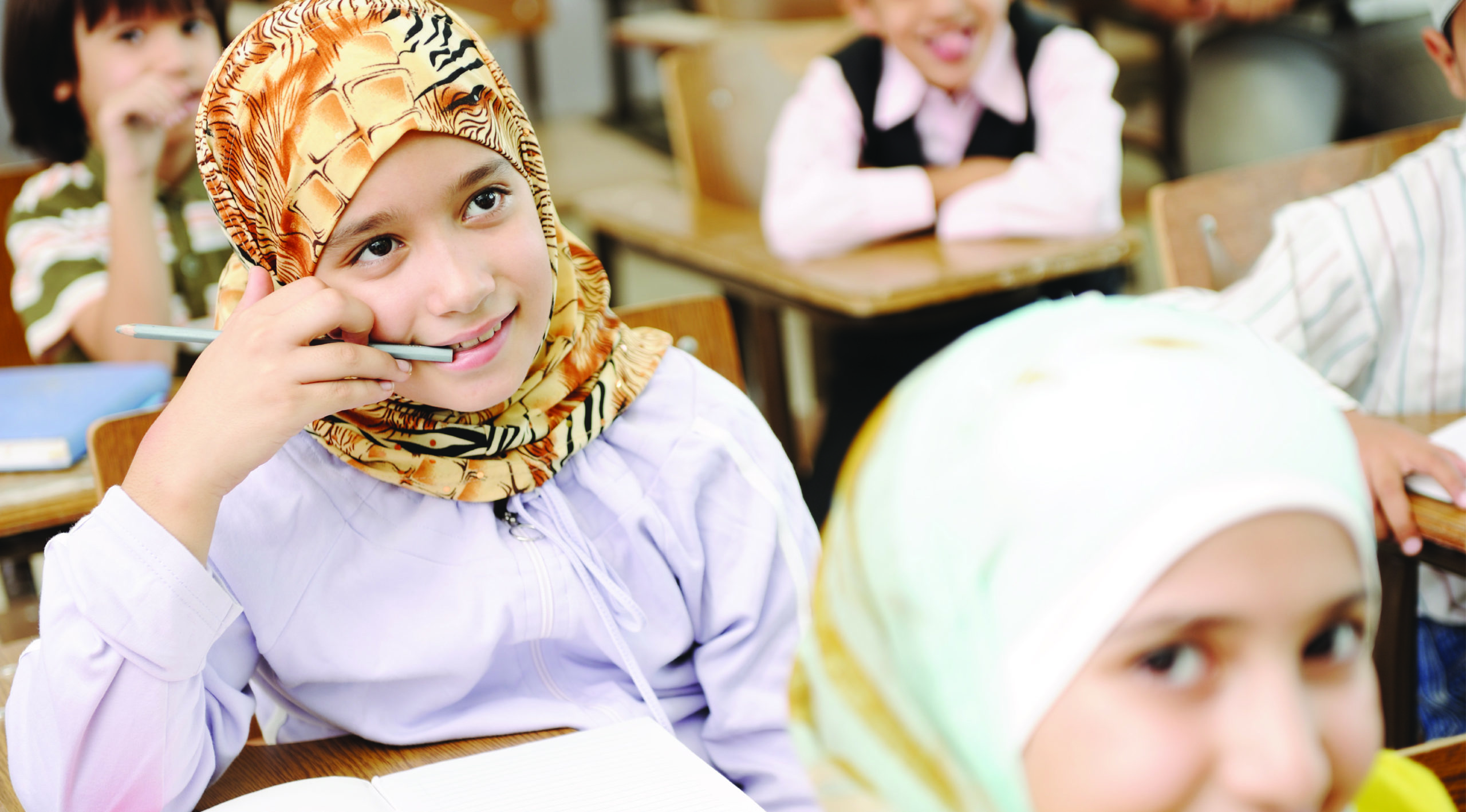Event Highlights: KIX EMAP Webinar 19: Advancing Gender Equity and Social Inclusion: Evidence-Based Education Research in South Asia, Middle East and North Africa
On 27 March 2024, the KIX EMAP Hub hosted Webinar 19 on the topic of “Advancing Gender Equity and Social Inclusion: Evidence-Based Education Research in South Asia, Middle East and North Africa”. More than 90 participants attended this online event. The webinar was conducted in English, with interpretation in Arabic.
The webinar opened with welcoming words from José Luís Canêlhas, KIX EMAP Hub Director. The webinar featured four speakers including KIX researchers and KIX EMAP Hub national experts: Rokeya Akhter, Executive Director of the South Asian Institute for Social Transformation (SAIST), Zahid Majeed, Director, Academic Planning and Course Production at Allama Iqbal Open University, and Zahida Batool, Deputy Director Planning, Quaid-e-Azam Academy for Educational Development (QAED).
After the welcoming words, Rokeya Akhter gave the first presentation “Gender and Social Disparities in School Dropout Risks Reduction: A Multifaceted Intervention in Bangladesh.” These findings from Learning Cycle 2 addressed child dropout in schools in Bangladesh, with a focus on gender and social disparities, and proposed intervention policies for dropout risk reduction. The second presentation “School leaders and inclusive practice in Pakistan: capabilities, collaboration and constraints” was delivered by Zahid Majeed who occupied a country lead role for the KIX research on “Networked Improvement Communities for School Leaders Towards Equity and Inclusion” in Pakistan. He focused on the barriers that children with disabilities face in Pakistan that exclude them from quality education and hinders the country from achieving their development goals. The third presentation “Advancing gender equity and social inclusion in Punjab”, from Zahida Batool discussed equity and social inclusion in education for all the children, with a focus on the situation in Punjab, Pakistan.
Each presentation was followed by an engaging Q&A session with the audience. Questions and comments from participants during the session focused on quality of available data in the countries during conflict times, teacher licensing challenging process, dropout rates, access to high quality education and gender inequality issues.
Further resources:
- KIX Project: Effectiveness and Scalability of Programs for Children Who Are Out of School and at Risk of Dropping Out in Bangladesh, Bhutan and Nepal
- KIX Project: School leaders as agents of change towards equity and inclusion
- Learning Cycle 2, Bangladesh case study in progress: Equitable Access to Education with Geospatial Data
Presentations:
- Breaking Barriers- Advancing Equity and Social Inclusion in Punjab, Pakistan
- Gender and Social Disparities in School Dropout Risks Reduction: A Multifaceted Intervention, Bangladesh
- School leaders approaching equity and inclusion through collective action and professional networks: case study, Pakistan
أبرز خلاصات وبينار ١٩: تعزيز المساواة بين الجنسين والإدماج الاجتماعي: البحوث التعليمية القائمة على الأدلة في جنوب آسيا والشرق الأوسط وشمال أفريقيا
في ٢٧ مارس ٢٠٢٤، استضاف مركز كيكس وبينار رقم ١٩ حول موضوع ”تعزيز المساواة بين الجنسين والإدماج الاجتماعي: بحوث التعليم القائمة على الأدلة في جنوب آسيا والشرق الأوسط وشمال أفريقيا“. حضر هذا الويبينار أكثر من ٩٠ مشاركًا عبر الإنترنت. عقد الويبينار باللغة الإنجليزية، مع ترجمة فورية باللغة العربية.
افتتح الويبينار بكلمات ترحيبية من جوزيه لويس كانيليس، مدير مركز كيكس. شارك في الويبينار أربعة متحدثين من بينهم باحثون وخبراء وطنيون في مركز كيكس: رقية أختر، المديرة التنفيذية لمعهد جنوب آسيا للتحول الاجتماعي (SAIST) ، وزاهد مجيد، مدير التخطيط الأكاديمي وإنتاج المقررات الدراسية في جامعة العلامة إقبال المفتوحة وزاهدة بتول، نائبة مدير التخطيط في أكاديمية القائد الأعظم لتطوير التعليم .
بعد الكلمات الترحيبية، قدمت رقية أختر العرض الأول بعنوان ”الفوارق بين الجنسين والفوارق الاجتماعية في الحد من مخاطر التسرب من المدارس: تدخل متعدد الأوجه في بنجلاديش. ” تناولت نتائج دورة التعلم الثانية تسرب الأطفال من المدارس في بنجلاديش، مع التركيز على الفوارق بين الجنسين والفوارق الاجتماعية، وسياسات التدخل المقترحة للحد من مخاطر التسرب من المدارس. أما العرض الثاني ”قادة المدارس والممارسة الشاملة في باكستان: القدرات والتعاون والقيود“ فقد قدمه زاهد مجيد الذي شغل منصب قائد قطري في بحث ”مجتمعات التحسين الشبكي لقادة المدارس نحو الإنصاف والإدماج“ في باكستان.
وقد ركز على العوائق التي يواجهها الأطفال ذوي الإعاقة في باكستان والتي تقصيهم عن التعليم الجيد وتعيق البلاد عن تحقيق أهدافها التنموية. وناقش العرض الثالث ”النهوض بالمساواة بين الجنسين والإدماج الاجتماعي في البنجاب“، الذي قدمته زاهدة بتول، المساواة والإدماج الاجتماعي في التعليم لجميع الأطفال، مع التركيز على الوضع في البنجاب، باكستان. واعقبت كل عرض تقديمي جلسة أسئلة وأجوبة تفاعلية مع الحضور، وركزت أسئلة وتعليقات المشاركين خلال الجلسة على جودة البيانات المتاحة في البلدان خلال أوقات النزاع، وتحديات عملية منح التراخيص للمعلمين، ومعدلات التسرب، والوصول إلى تعليم عالي الجودة، و قضية عدم المساواة بين الجنسين.
مصادر إضافية
- مشروع كيكس: فعالية وتوسيع نطاق البرامج الخاصة بالأطفال غير الملتحقين بالمدارس والمعرضين لخطر التسرب من المدرسة في بنجلاديش وبوتان ونيبال
- مشروع كيكس: قادة المدارس كعوامل للتغيير نحو المساواة والإدماج
- دورة التعلم الثانية: دراسة حالة بنجلاديش: الوصول العادل إلى التعليم باستخدام البيانات الجغرافية المكانية (دراسة قيد التنفيذ )
العروض التقديمية
- كسر الحواجز – النهوض بالمساواة والإدماج الاجتماعي في البنجاب، باكستان
- الفوارق بين الجنسين والفوارق الاجتماعية في الحد من مخاطر التسرب المدرسي: تدخل متعدد الأوجه، بنجلاديش
- قادة المدارس يقتربون من المساواة والإدماج من خلال العمل الجماعي والشبكات المهنية: دراسة حالة، باكستان

